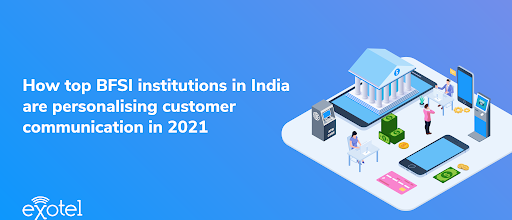The internet penetration in Southeast Asian countries has grown steadily over the last couple of years. In 2018, there were 391 million mobile internet users in Indonesia, Thailand, Malaysia, Singapore, Philippines, and Vietnam alone. This, coupled with a growing middle class in these countries has given rise to a booming eCommerce and logistics sector.
In 2020, this growth amplified further during the pandemic. To maintain social distancing and stay safe, more and more people hopped on to digital platforms for food delivery and shopping apps. While this is excellent news, the fact that the digital literacy rates in these countries are low is a cause of concern.
Online Fraud on the Rise
Despite high digital penetration in a key Southeast Asian country like Indonesia, consumers are highly likely to fall victim to online fraud because of low digital literacy rates.
This is made clear by the increasing number of complaints about digital fraud in Southeast Asian countries. For example, online fraud was the second-largest source of police complaints filed in Indonesia between January and September 2020. Similarly, in Malaysia, 26% of all complaints received by MDTCA involve digital fraud in the eCommerce sector. Here are some of the most common types of fraud occurring in the Southeast Asian Market:
- Social engineering attacks
- Delivery fraud
- Transaction fraud
- Chargeback fraud
Even big brands like Gojek and Blibli have been seeing these attacks on their customers. Case in point: a Gojek customer lost Rp. 9 million due to consumer fraud in January 2020. Another customer lost half a million Rp. in a similar incident. With such news making headlines, consumer’s concerns about the security of digital transactions have spiked. As a result, customers continue to prefer COD over electronic payments due to the fear of digital fraud. This lack of trust can act as a barrier to further growth in the sector.
Consumers continue to favour Cash on Delivery over digital payments due to the fear of digital fraud.
How You Can Tackle Rising Digital Fraud in Southeast Asia
To tackle the increasing attacks on consumers, businesses can take the following steps:
- Educate customers about social engineering attacks: You can run digital literacy workshops to improve the understanding of online attacks, guard customers with security best practices and basic cybersecurity hygiene. Doing so will increase awareness among customers, and they’ll be less likely to fall victim to online fraud.
- Ensure that customer data is protected and encrypted: When it comes to customer privacy, businesses have to take responsibility. To reduce the occurrence of such attacks, you can build secure applications, and make sure delivery executives don’t have access to customer data (like phone numbers). Using number masking, you can prevent access to a critical customer data point – their phone number – and effectively reduce the number of attacks.
- Enable two-factor authentication: By enabling two-factor authentication on your apps, you can offset a good percentage of these attacks from happening. Since the attackers will have to go through two authentication levels, it’ll make it difficult for them to gain access to customers’ accounts.
- Enact thorough background checks on delivery executives: Delivery executives are common perpetrators of these attacks. Hence, it makes sense to do thorough background checks on them before hiring. Doing so will help reduce the chances of them attacking customers.
- Respond to digital fraud complaints on priority: Many victims of fraud often incur additional losses due to untimely action from the business’ end. To avoid this, you can set up a hotline for digital fraud complaints. As soon as someone makes a complaint, you can take timely action like freezing their account to limit the damage done. Exotel can help you set up a toll-free hotline for this purpose in just a couple of hours! You can also give an option to your customers via IVR to block/freeze their account directly.
By taking such initiatives, businesses can slowly increase trust among their customers and reduce fraud significantly. The onus also falls on the governments in these countries to enact and enforce consumer protection laws. Since Southeast Asian countries are in the early stages of the digital revolution, this focus area is relatively new. Despite that, governments are already taking steps towards this; for instance, online consumer protection is a priority theme in Indonesia’s E-commerce Master Plan.
Overall, with everyone doing their part – educating customers about cybersecurity, enacting better security measures on-platform, and introducing consumer protection laws – Southeast Asian countries can make real progress towards reducing instances of online fraud.
Enhanced Customer Privacy with Exotel
Exotel has been helping giants like Gojek and Blibli protect their customers’ interests and reduce fraud, with handy features like Number Masking. Number masking or call masking is the best way for businesses to safeguard their customers’ identities and prevent misuse of sensitive information. It allows you to connect two parties without revealing either’s phone number. Find out how Exotel can help you do the same here.




 +65-6951-5460
+65-6951-5460 +91-8088919888
+91-8088919888 +1-(718) 354-8866
+1-(718) 354-8866 +62-215-098-4960
+62-215-098-4960 +60-3-2771-2799
+60-3-2771-2799 +61-2-8073-0559
+61-2-8073-0559
No Comments